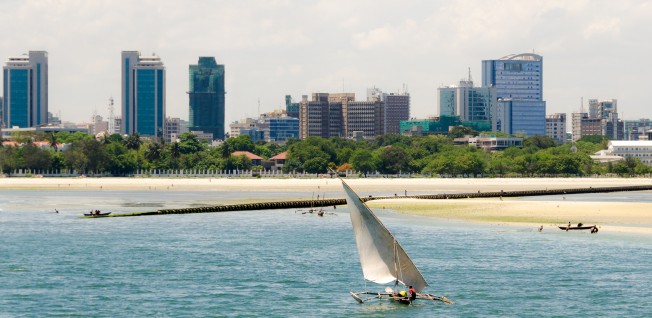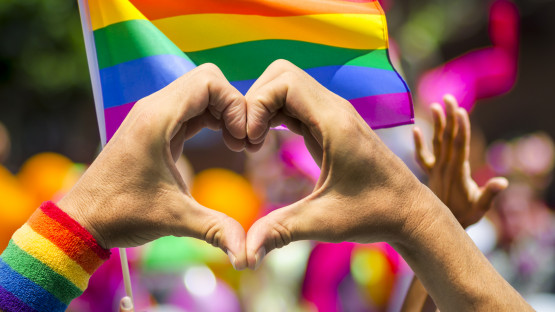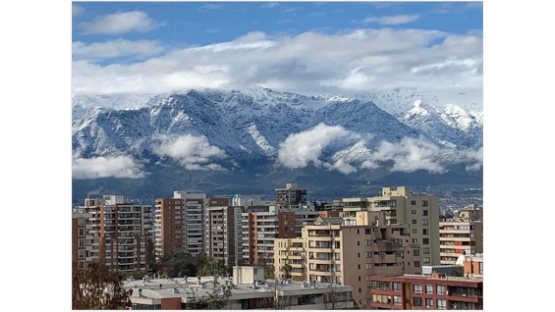Two Moms, Swahili Style

In a moment of gay naïveté, my partner and I moved with our four-year-old son to Tanzania in 2010. We shrugged, saying we’d just act like friends out in public and keep our inner lives private. Being slightly in the closet didn’t seem like a high price to pay to live in an exotic land. There were plenty of places we couldn’t walk around holding hands in our native USA, so why not live somewhere really culturally compelling?
We arrived and immediately started learning Kiswahili, cramming onto local buses, and generally just trying to keep our eyes open. We treasured every moment of perspective-shifting raw life waiting for us right outside our door. We were instantly in love with Dar es Salaam.
Going back into the Closet
With a few rare exceptions, we found any gay life to be completely hidden in Tanzania. We got the sense that Tanzanians would find the idea of a same-sex relationship strange, but largely benign. Their range of family systems allows for many sorts of “non-traditional” relationships, and the majority of people probably do not even realize that homosexuality is against the law.
This detail of legality, however, made coming out a risk we were not terribly eager to explore. We had only two Tanzanians spend a significant amount of time in our house, and one of them ended up filing a police report against us for being gay. I don’t think this was out of malice or homophobia exactly, but more from the desperation that comes with poverty. Her real intent was to extort money from us, and because there is room for that in the system, she succeeded. Regardless, it didn’t exactly feel welcoming.
Mama Ndogo
It turned out to be much more complex than not holding hands in public. Staying safely discreet meant being dishonest in nearly every basic interaction. I couldn’t truthfully answer the most basic questions: “What are you doing in Tanzania?” (Uh, I’m visiting my friend.) Or, “How long are you visiting?” (Uh, a long time.) “Do you have a family here or back where you came from?” (Uh, yes…?) “Are you married?” (Uh…) Imagine all this happening in my elementary Kiswahili. I sounded like an idiot.
Our son knew nothing of this. If people inquired to me or to my partner, “Is this your son?” whichever one of us was asked would say, “Yes.” We then made a mental note on which of us was understood to be the mom in that circle. In a pinch, the other could be called mama ndogo, a phrase that describes the non-biological mother in a family where the husband has more than one wife.
While there is neither a husband nor any polygamous practice in our relationship, at least we had an accepted linguistic fall-back for the “other mom.” Neither of us ever denied Finn as ours when asked in his presence, and by tiptoeing and answering vaguely we managed to keep peace.
Respect for Local Customs and the Price to Pay
In the developing nations where I like to travel, or the one in particular I called home, I donned a long skirt and a shirt that covered my shoulders, even in sweltering hot humidity. Outside the safe international crowds, I do not outwardly sport my tank top, nor my homosexuality. In equal measure, for equal reason. I do this out of cultural respect, in humble acknowledgment that I am on someone else’s soil.
I strongly believe in being mindful of local custom, because this diversity of ideas and experience is what makes travel so compelling to me. Expressing myself is not the aim when boarding a crowded bus and buying my vegetables at the local market in Dar, where a handful of vendors had come to know and expect me. My agenda was to learn, and this was how I compromised.
But the price of going back in the closet was higher than we anticipated. It meant weaving a web of lies that completely cut us off from any chance at genuine, meaningful interaction with local people. Which was part of the reason we’d come in the first place. And so we made plans to leave that land we otherwise loved, and my partner took a job in South Africa.
An Enriching Experience
A change in perspective and glimpse into another life is one of the greatest gifts, even when some of those traditions may include a lack of respect for my family structure. I accept this, sidestep that difference of opinion, and look instead for what is in this worldview that can enrich my own. There is always something. But it doesn’t mean my family will stay there for the long haul.
Every gay person must do their own dance of navigating the different varieties of oppression in the world, while staying both proud and safe. While it was no small feat to keep life running smoothly in our home, we would not trade our time in Tanzania for anything. Each of us is better for our years spent there.
Kelsey Heeringa spent a decade exploring unique subcultures across her native USA and then moved to Tanzania to fill a hole in her heart. She's currently an aspiring writer living in South Africa.










